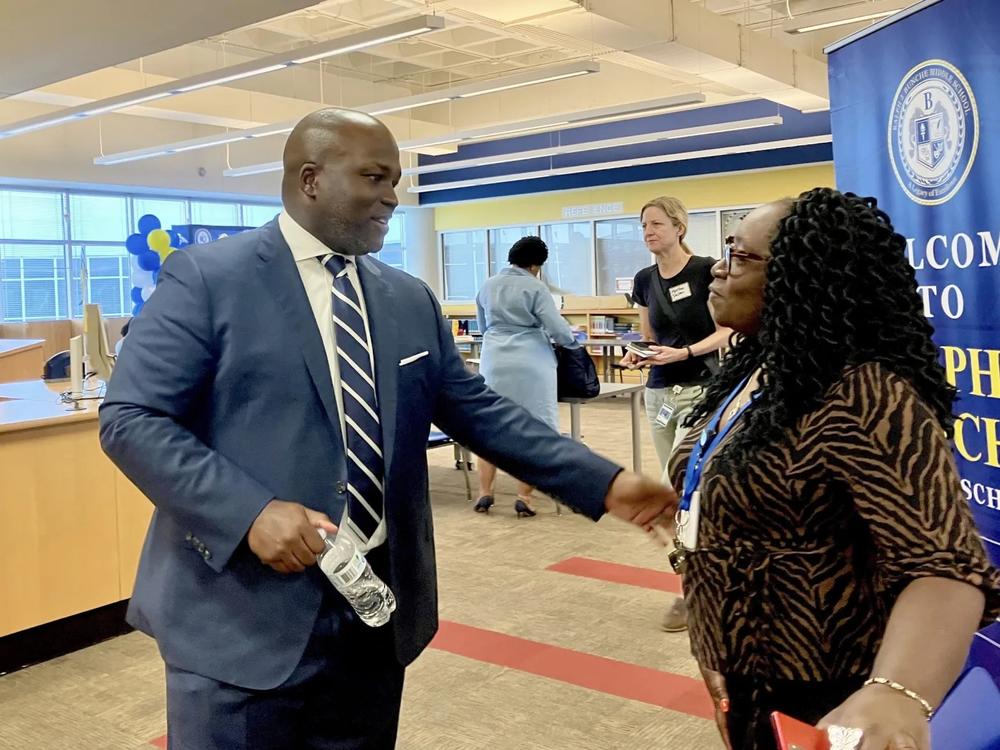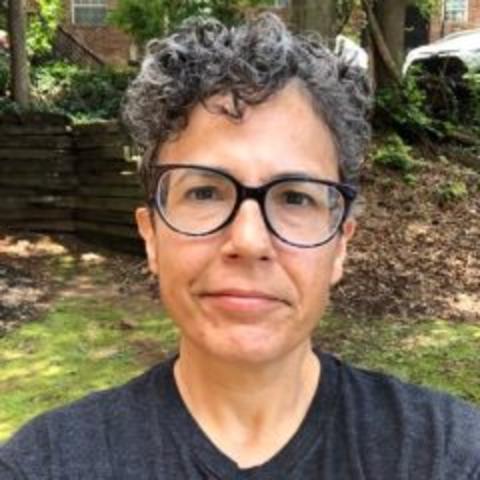
Caption
Atlanta Public Schools’ Superintendent Dr. Bryan Johnson speaks to a staff member at Ralph J. Bunche Middle School on Aug. 7. The new superintendent is visiting the district’s 87 schools during his first 100 days.
Credit: Photo by Dyana Bagby

